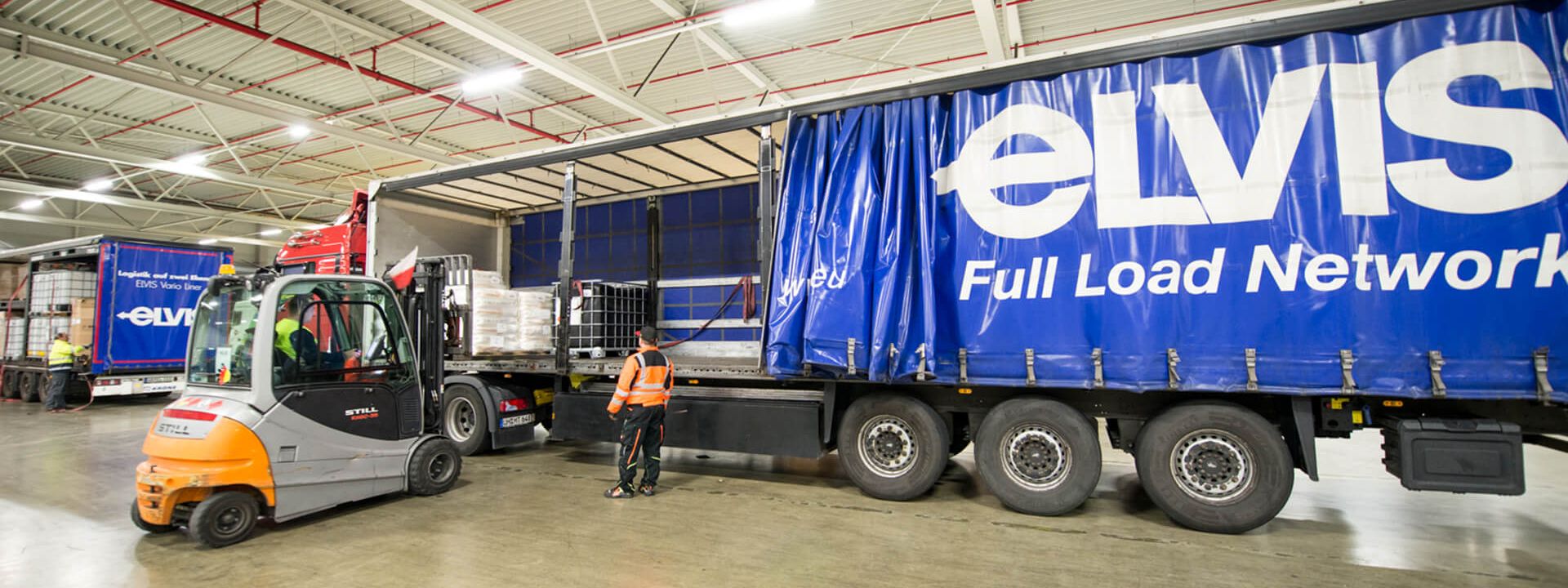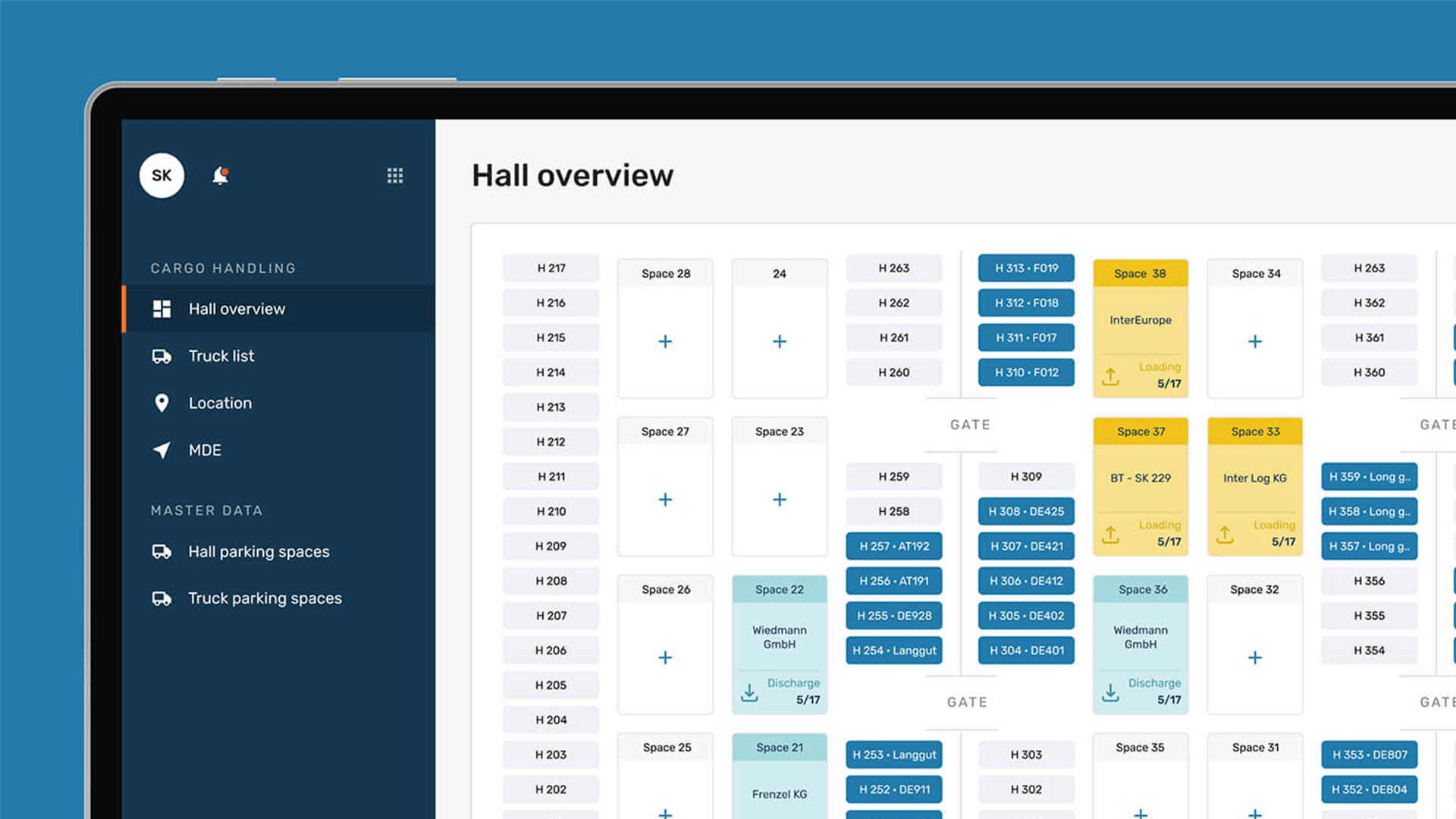The EIKONA Cargo Handling module makes transloading at the ELVIS hub more efficient thanks to early planning and demand-oriented personnel scheduling.
What was the challenge in handling cargo for ELVIS?
The ELVIS less than truck load network consolidates shipments from connected regions at its hub in Knüllwald, Germany. The vehicles reach the transloading terminal at fixed arrival times. Trucks from nearby locations are scheduled first, while tractor trailers from more distant depots do not arrive until the peak handling phase between 11 p.m. and 1 a.m. Two drivers are used on particularly long routes. Vehicles arriving at the hub are loaded with an average of around six shipments that each take up five to seven bays in the truck. According to the network's guidelines, a single shipment may be up to 6.50 meters long.
To transload the shipments, ELVIS uses two buildings that are almost identical in construction and located right next to each other. They are designed to allow trucks to drive to their handling point in fixed lanes. Previously, the warehouse manager had to assign fixed locations to the goods and could not adjust them as quantities changed. Some locationsremained empty, while others were too small to accommodate the volumes on that day. That made it impossible to schedule the forklift drivers before the trucks arrived, not to mention allocating the route staging areas for inbound and outbound lines in a way that streamlined the handling process.
Solution: software module for data exchange and area allocation
The EIKONA Cargo Handling module from the EIKONA Logistics Cloud now gives ELVIS the option of processing advance shipment information. The network partners supply the software with exact data for transports arriving at the hub by 6 p.m. on the day of handling. The shift managers can use this information to decide early on which handling area should be reserved for which vehicle. In addition, the software manages forklift use, ensuring that trailers start getting unloaded immediately upon arrival. As soon as truck unloading begins, the process is displayed in real time in the warehouse control system. That allows subsequent trucks to be seamlessly scheduled and processed. To dynamically adjust space planning and scheduling, the hub management team also receives current GPS data from the inbound trucks, including their expected time of arrival (ETA). Warehouse areas can then be pre-assigned early and unloading can begin right after the incoming vehicle is scanned.
Result: digital process with easy coordination and time reserve
Instead of relying on short-range paper-based plans, the ELVIS hub now has a digital process that provides a flexible and comprehensive overview without requiring employees to look out the window. Planning and structure are transparent for all stakeholders at all times; forklift drivers can be scheduled early and efficiently. The complex processes integrate smoothly and are organised in way that leaves a safety buffer for easier handling of shipments in which the packaging or the goods have been damaged. All in all, cargo handling at the hub is now so tightly organised that it requires less specialised knowledge from individual people.
What does the ELVIS less than truck load system do?
The ELVIS AG network aggregates shipments too large to be handled by existing general cargo systems. This speeds up the processing of transport orders and avoids special runs and empty kilometres. Freight forwarders can harness this structure to efficiently arrange for less-than-truck-load transports and thus improve their bottom line.


